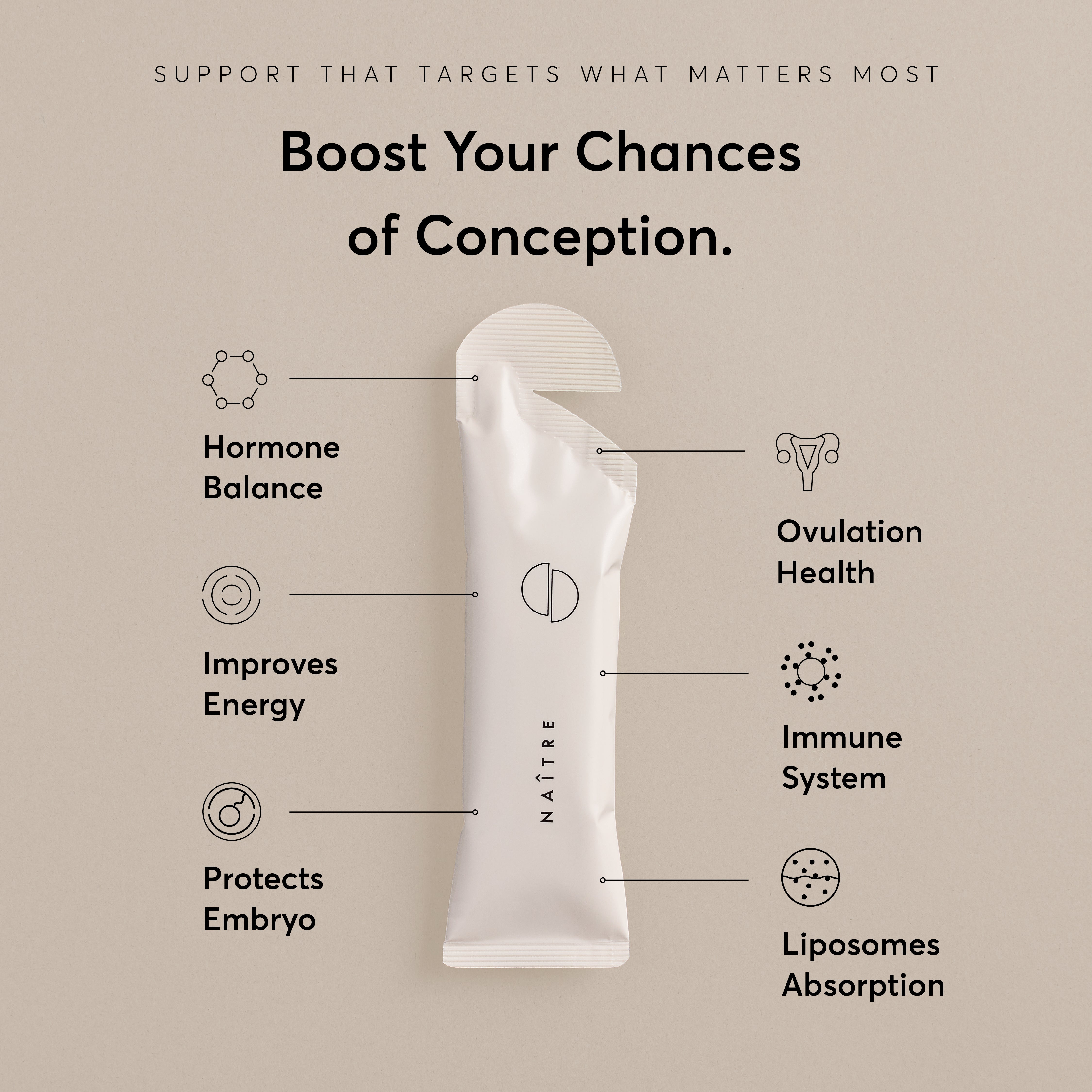When it comes to trying to conceive (TTC) we often begin this journey with hope, optimism and excitement.
We visualise what it will be like to find out we are pregnant and our life as a family. But what about when it doesn’t happen? What about when the journey to becoming parents isn’t as simple or quick as we had imagined and what is the emotional toll that this can take on us as a couple?
As a qualified health and behaviour coach specialising in binge and emotional eating I understand the importance of emotional wellbeing in this phase of our lives both individually and a couple. In this article, we’ll explore the emotional impact couples may face while trying to conceive and I will provide strategies for you both to use to emotionally support each other through this time.
Starting the journey
Once you finally make the decision to have a baby, it feels like a switch in your mind. Something changes in you and it can really feel like you want it to happen right now because at the moment you make that decision, you set out on a new path as a couple. You change from being a couple who are just enjoying day to day life as it is, to a couple who are planning and desiring a future as parents and this creates more of a change in your life than you can ever anticipate. This journey often begins with excitement but if you have been trying to conceive for a while, it can start to feel like it is taking over your life and the process can start to take its toll emotionally on you both as individuals and as a couple.
Discussing the Emotional Impact
The TTC journey can evoke a wide range of emotions ranging from excitement and hope to anxiety and anger. It is essential to acknowledge and understand the emotions that you and your partner may be experiencing and recognise that feeling a complexity of emotions during this journey is extremely common.
Let’s explore some of the ways the TTC journey can have an emotional impact on couples:
You may experience anxiety and stress - Enduring the waiting game of the two week wait each month can feel all consuming, exhausting and endless. You may begin to feel overwhelmed with how much you are thinking about whether or not you have conceived that month. That pressure can cause an immense amount of anxiety and stress. You may feel like your mind is in overdrive as you proceed through this process and it can feel like it becomes virtually all you think about. The constant uncertaining and waiting can feel all consuming which in itself can lead to feeling overwhelmed and anxious.
It can put a strain on your relationship - When you are trying to conceive, this can often put a huge strain on couples. It can feel like all you talk about and can become your primary focus as a couple which can lead to you feeling disconnected and missing out on ways you used to connect as a couple. It may also impact your sex life as it can all feel very functional rather than romantic and organic. Partners may feel like they are struggling to connect and understand how the other person may be feeling.
You may feel disappointed and frustrated - If the process feels drawn out and you have experienced a lot of disappointment you may begin to feel hopeless and desperate for it to happen. This can be especially challenging when family and friends around you announce pregnancies or repeatedly ask or pass comments about when you will be having a baby.
You may experience feelings of isolation - For some, TTC can feel like an extremely lonely time. Many couples choose to keep their conception journey to themselves or only share with very close friends and family which can leave couples feeling isolated in their experience. Feelings of isolation and loneliness can increase if conception becomes more of a long term struggle which leads to medical appointments and potentially IVF as it can feel like you are alone in your journey as a couple especially as others around you may not have experienced the same.
Strategies for Emotional Support
Although this time can be challenging and all of your emotions throughout this time are valid, there are ways in which you can maintain a strong emotional connection and support each other as a couple. Let’s discuss some of these below:
Communication is key
Open Conversation - Sharing your feelings with each other is essential as talking openly with each other can ease the load each person carries as well as maintaining a deep connection and sense of trust between you both. It is so important to create a safe space for each other where both partners feel like they can openly and honestly share their feelings and feel understood and heard.
Be a great listener - Listening to your partner and giving them your full focus will help them to really feel held and supported in the way that they are feeling. Sometimes we aren’t necessarily looking for a solution or ways to fix things, we just want to have a safe space to voice and express our feelings and have them empathetically witnessed and heard. Actively listening and really trying to compassionately understand how the other person is feeling is really important when it comes to maintaining a trusting connection between you both.
Strengthen your relationship
Have fun
When TTC it can feel like life is on hold because you don’t know if or when you may become pregnant. It can also feel like everything becomes focused on your efforts to become pregnant and therefore it’s so important to focus on having fun as a couple. Scheduling in time to spend together each week doing things that you both enjoy can not only maintain a level of normalcy but will also ensure that you have fun with each other which in turn will help you feel like you are a team.
Intimacy
Many couples feel like intimacy while TTC can feel like it lacks romance and spontaneity due to it feeling very “functional” rather than organic. A brilliant way to maintain a strong bond is to prioritise intimacy which doesn’t involve intercourse. A deep conversation with each other, making a delicious meal together, giving each other a massage and even cuddling on the sofa at the end of a long day. All of these things will support you both in feeling deeply connected to each other.
Having a support system
Seek out professionals
Don’t hesitate to reach out to professionals if you feel like you need more support. Whether that be medical, holistic practitioners or support through a coach, counsellor or therapist; these professionals can offer guidance that you may find invaluable.
Find a support system
It can still feel like trying to conceive can be a taboo subject which is why we are opening up the space for conversation to happen around this topic. Connecting with other couples who are going through similar journey’s can be incredibly helpful and validating. There are many couples sharing their experiences through social media as well as local and online support groups.
Prioritise Self-Care
Support Mental Health
Taking care of your mental well-being is essential for both partners, therefore it can be a good idea to prioritise activities that promote positive mental health. Finding what works for you is an important aspect to consider as many people feel pressured to, for example; meditate or journal. These things are fantastic tools and if they work for you, brilliant, if not - that’s ok too. Find what supports you.
Finding these positive coping mechanisms can help you to manage your stress and anxiety levels which will support your overall well-being as well as your fertility.
There are many ways to prioritise your mental health: reading, walking, spending time with friends, focusing on a hobby, taking baths, being self compassionate, exercise, therapy, book a massage…basically whatever you find relaxing, gives you space to think and you enjoy.
Maintain a Healthy Lifestyle
A healthy body supports a healthy mind. Focus on habits that promote good physical health as this will support your fertility as well as making life easier and more enjoyable. It’s important to eat a diet rich in protein, good fats, wholegrains, plenty of fibre and eating a variety of fruits and vegetables. It’s also important to include foods that you enjoy and not feel restricted in what you can or can’t eat. Stressing over what you are eating is adding to your stress and anxiety levels. If you can focus on eating nutritious foods for the most part you are doing a great job. Other ways to support your physical health are; drinking plenty of water, keeping alcohol consumption in check, exercising regularly and getting plenty of sleep.
Conclusion
Trying to conceive can be a challenging and emotional journey for couples which requires them to traverse obstacles that they may never have expected to be part of their journey to parenthood. By prioritising communication, connection, strengthening their relationship through having fun together and lovely intimacy, creating an understanding support system and prioritising self care and your health couples can navigate this challenging time together and feel deeply supported by one another.
Throughout this time, be kind to yourselves and to each other, remember that all of your emotions and experiences during this time are valid. Focusing on staying connected and emotionally supporting each other throughout this journey is a vital part of this process.









